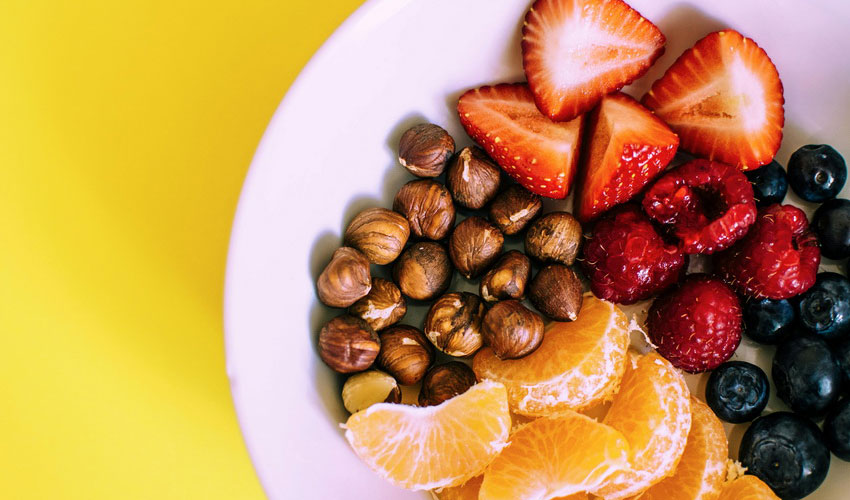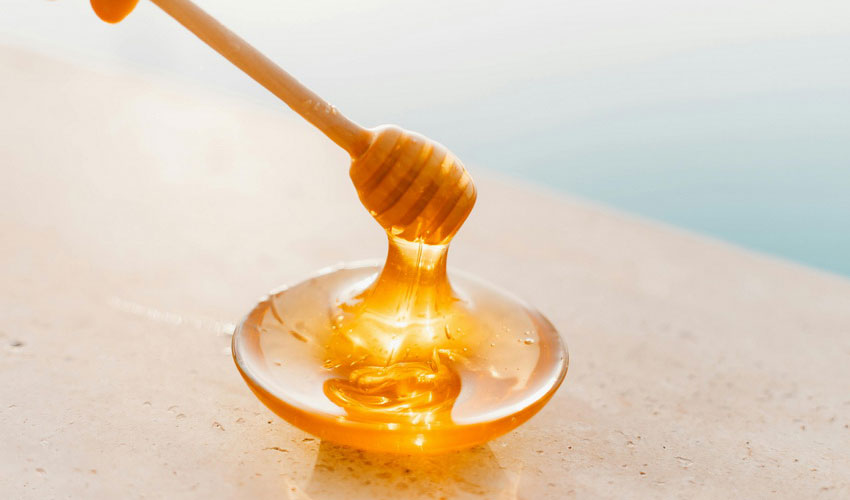Essential in the House to Boost Your Immunity This Cold & Flu Season
As flu season descends upon us once again, the familiar advice to get a flu shot is being touted by health agencies. However, vaccination may not be the most effective method for preventing illness during this time of year. Here in Northern Thailand, where winter has arrived and temperatures have dropped to a cool 23°C, the locals have a different approach to staying healthy. Unlike in other regions where flu shots are common practice, people in this area rely on the power of nutrition to boost their immune systems.
By consuming a diet rich in immune-boosting nutrients found in whole, healthy foods, people can better protect themselves against illness. With a range of easily accessible ingredients, you can support your immune function and keep yourself in optimal health throughout flu season. Whether you already have these items in your pantry or need to stock up, now is the perfect time to start incorporating these key foods into your daily meals.

A Small Bulb of Garlic Provides Big Benefits
Garlic has been revered for its culinary and medicinal benefits throughout history, as evidenced by its presence in ancient Chinese, Egyptian, Greek, Indian, and Roman medical texts. This pungent food offers a multitude of advantages, thanks to its anti-inflammatory, anticancer, and antimicrobial properties. Packed with bioactive compounds such as saponins, phenolics, and organic sulphides, garlic's sulphur-containing compounds like allicin, alliin, ajoene, and allyl propyl disulphide also play a significant role in its health benefits, particularly in fighting colds and the flu. Garlic's organosulphur compounds have been shown to help maintain immune system balance by positively influencing immune cell activity, including the regulation of cytokine levels and expression. This mechanism likely contributes to garlic's effectiveness in treating infections and tumours. By activating certain chemicals within the immune system, Garlic aids in the elimination of inflammatory cells and combats bacteria and viruses. One of Garlic's standout features is its impressive shelf life. An unpeeled head of Garlic can remain fresh for up to six months when stored in a cool, dry, well-ventilated, dark place at room temperature. However, peeled Garlic tends to degrade more quickly, so it is recommended to use it promptly. It's important to note that Garlic's beneficial compounds are sensitive to heat, which is why consuming raw, chopped garlic is ideal for maximising its immune-boosting effects (chopping or crushing enhances the allicin content). If the strong taste of raw Garlic is too intense for you, allowing the chopped garlic to sit for 15 minutes before cooking can help mellow the flavour while preserving its health benefits.
Raw Manuka Honey - A Powerful Alternative to Antibiotics for Respiratory Tract Infections
Manuka Honey, derived from the nectar of the manuka plant (Leptospermum) native to Australia and New Zealand, is renowned for its remarkable medicinal properties, particularly in wound healing. This unique honey is distinguished by its potent antimicrobial qualities, primarily attributed to dihydroxyacetone, a compound that leads to the formation of methylglyoxal (MGO). MGO is the powerhouse behind many of Manuka Honey's health benefits, including its ability to combat antibiotic-resistant respiratory infections. A systematic review and meta-analysis published in BMJ Evidence-Based Medicine highlighted Manuka Honey's efficacy in treating upper respiratory tract infections (URTIs), commonly known as the cold. The research demonstrated that Manuka Honey not only alleviated symptoms but also reduced the severity and frequency of coughs, proving to be more effective than conventional treatments. This natural remedy offers an accessible and cost-effective alternative to antibiotics, making it a valuable ally in the fight against antimicrobial resistance. However, further high-quality, placebo-controlled trials are necessary to fully validate these findings. It's essential to ensure that the Manuka Honey you choose is pure and free from contaminants. When stored properly, genuine, unadulterated Manuka Honey can last for years without spoiling. Be cautious, though; the processed honey commonly found in grocery stores is often mixed with corn syrup and lacks the health benefits of authentic Manuka Honey. Choose wisely for your health!

The Anti-Inflammatory Benefits of Ginger's Bioactive Compounds
Ginger, much like garlic, is a versatile and aromatic addition to your favourite dishes, imparting a distinct flavour profile. Not only can Ginger spice up your meals, but it can also be enjoyed as a soothing and fragrant tea, perfect for warming up during cold winter days. What sets Ginger apart is its impressive array of health benefits. It is renowned for its anti-inflammatory, antioxidant, and immunomodulatory properties, making it a powerhouse in promoting overall wellness. The warming effects of Ginger tea can help combat or alleviate a sore throat, particularly during the colder months. A study published in Frontiers in Nutrition highlights the various compounds in Ginger, such as gingerol, shogaol, zingerone, and paradol that contribute to its health benefits. These bioactive compounds work to inhibit pro-inflammatory responses, boost levels of anti-inflammatory cytokines, and enhance signaling pathways that help prevent inflammation. Furthermore, the antioxidant properties of Ginger play a crucial role in improving oxidative stress tolerance by neutralising harmful free radicals and enhancing antioxidant enzymes and capacity. Gingerol, the primary bioactive compound in ginger, has been shown to protect against viral and bacterial infections, including those associated with oral health and respiratory illnesses. To incorporate Ginger into your daily routine, simply peel the skin with a spoon and slice or grate it for use in smoothies, soups, or broth. For a fragrant tea, steep ginger slices in hot water, or use Organic Ginger Powder for convenience. To keep Ginger fresh, store it unpeeled at room temperature for up to three weeks or in the fridge for up to a month. Overall, Ginger is not just a flavourful ingredient in cooking but also a powerful ally in promoting health and well-being.
Hot Chilli Peppers Aid in Clearing Congestion
My love for Chilli Peppers is undeniable. They are a staple ingredient in every dish we prepare, regardless of the season. Have you ever noticed that eating spicy foods like Chilli Peppers can sometimes make your nose run? This reaction is due to capsaicin, a bioactive compound responsible for the fiery heat found in these foods. Surprisingly, this runny nose effect can actually be beneficial when you're feeling under the weather, as capsaicin has the ability to thin out mucus, making it a less hospitable environment for viruses and bacteria to thrive. But the advantages of Chilli Peppers don't stop there. These fiery little fruits are packed with vitamin C, often even more than oranges. For example, just a 4-ounce serving of raw green bell pepper contains 80 mg of vitamin C, while the same amount of yellow, red, or orange bell pepper provides even higher amounts. Varieties like serrano, jalapeno, and poblano peppers offer a different flavour profile for you to experiment with in the kitchen. Storing Chilli Peppers in the fridge can keep them fresh for up to a year, and freezing them can extend their life even further. Their versatility allows them to enhance a wide range of dishes with a mild, yet satisfyingly spicy kick. However, as with many things, moderation is key. Consuming too much capsaicin can lead to unpleasant side effects such as diarrhoea, nausea, vomiting, and a burning sensation in the gastrointestinal tract. So while Chilli Peppers can add a fiery flavour to your meals and provide valuable health benefits, it's important to enjoy them in moderation.

Bolster Your Immune System with White Tea or Turmeric
Ensuring you stay properly hydrated is crucial for maintaining a strong and healthy immune system, and luckily, there are plenty of delicious and nutritious beverages to choose from. Among my top picks for immune-boosting drinks are Turmeric Tea and White Tea, especially ideal during the colder months as they provide warmth and an abundance of antioxidants. Turmeric, a spice closely related to ginger, contains curcumin as its active compound, known for its powerful immune-boosting properties. The anti-inflammatory and antioxidant effects of curcumin have been well-documented, with recent studies also highlighting its immunomodulatory effects. Research conducted in Japan revealed that taking 150 milligrams of curcumin daily for 12 weeks helped shorten the duration of cold symptoms in healthy adults. In particular, it was found that curcumin consumption could reduce sneezing, nasal discharge, blocked nose, and coughing by significant margins. On the other hand, White Tea, derived from the Camellia sinensis plant, is rich in beneficial polyphenols such as catechins like EGCG, known for their antioxidant and anti-inflammatory properties. These compounds not only assist in improving immune function but also have positive effects on various physiological processes. Different compounds found in White Tea interact with immune cells in different ways, leading to diverse effects on the immune system. Research suggests that White Tea may have greater immunomodulatory potential due to the synergistic effects of its various compounds on innate and adaptive immune responses. Enhancing the benefits of White Tea can be achieved by adding a squeeze of lemon juice, as the vitamin C content helps increase the body's absorption of catechins. For optimal results, opt for loose-leaf green tea over tea bags, as many commercially available tea bags contain toxins and microplastics that can negatively impact your health. By incorporating Organic Turmeric Tea and White Tea into your daily routine, you can not only stay hydrated but also support your immune system with a powerful boost.
Additional Nutritious Foods to Keep Stocked for Cold & Flu Season
When it comes to supercharging your immune system, the world of food offers a cornucopia of choices. While the five highlighted above stand out for their exceptional protective qualities, don’t limit yourself! Embrace a diverse array of immune-boosting options and elevate your meals with these delicious additions:
- Citrus Fruits: such as oranges, tangerines, bergamots, lemons, and limes—are a vibrant powerhouse of nutrition. Bursting with tangy flavour, these fruits are rich in vitamin C and folate, two vital nutrients that play a crucial role in strengthening our immune defences. They help maintain the integrity of our immunological barriers and enhance the functionality of key immune cells, including phagocytes, natural killer cells, T-cells, and B-cells. Incorporating Citrus into your diet is not just a delicious choice; it’s a smart strategy for bolstering your immune health.
- Leafy Greens: Leafy Greens, such as spinach, kale, and Swiss chard, are packed with essential vitamins and minerals, including vitamins A, C, E, and K, as well as folate and iron. Vitamin C, in particular, is known for its immune-boosting properties. Many Leafy Greens contain antioxidants, which help protect the body from oxidative stress and inflammation. This can be especially important during cold and flu season when the immune system may be under increased strain. Leafy Greens are high in dietary fibre, which supports gut health. A healthy gut microbiome is linked to a well-functioning immune system, helping the body fend off infections. These veggies also have a high water content, which can help keep you hydrated. Staying hydrated is crucial when you’re sick, as it helps maintain bodily functions and can alleviate symptoms like congestion. Certain compounds found in Leafy Greens possess anti-inflammatory effects, which can help reduce symptoms associated with respiratory infections. Finally, Leafy Greens are low in calories but high in nutrients, making them an excellent choice for a balanced diet, especially if appetite is reduced due to illness.
- Pumpkin: Pumpkin reigns as the quintessential fall food, but its appeal stretches far beyond the autumn months. Packed with an impressive array of vitamins A, C, and B, this vibrant squash is celebrated for its powerful antioxidant, anti-inflammatory, antiviral, and anti-diabetic properties. For maximum health benefits, opt for fresh Pumpkin; those processed Pumpkin-flavoured snacks simply can’t compete.
- Apples: In addition to their impressive fibre and vitamin C content, Apples are packed with powerful antioxidants such as anthocyanins and vitamin E. Research highlights that incorporating Apples into your diet can significantly lower the risk of atherosclerosis, coronary artery disease, heart attacks, and diabetes. Furthermore, these delicious fruits also offer remarkable anti-asthmatic and anti-allergic benefits, making them a true powerhouse of health.
- Seeds & Nuts: Nuts and seeds can be beneficial during the flu and cold season for several reasons. Nuts and Seeds are packed with essential nutrients, including vitamins (like vitamin E and B vitamins), minerals (such as zinc and magnesium), and healthy fats. These nutrients support overall immune function. Many Nuts and Seeds contain antioxidants, which help combat oxidative stress in the body. This can support immune health and may help reduce inflammation, which is particularly important when fighting off infections. Nuts and Seeds are a good source of healthy fats, especially omega-3 fatty acids (found in walnuts and chia seeds). These fats can help reduce inflammation and support cellular health. Nuts and Seeds provide a plant-based source of protein, which is essential for the repair and maintenance of body tissues, including the immune system. The fibre in Nuts and Seeds promotes gut health by supporting beneficial gut bacteria. A healthy gut microbiome is linked to a well-functioning immune system. Certain Nuts and Seeds, such as Ancient Purity Styrian Pumpkin Seeds, are rich in zinc, which is crucial for immune function. Zinc deficiency can impair immune response, making the body more susceptible to infections.
- Berries: Raspberries, blueberries, elderberries, blackcurrants, and blackberries are not just delicious; they are powerhouses of health. Bursting with phenolic compounds like anthocyanins, flavonols, and phenolic acids, these vibrant fruits deliver a wealth of benefits. Their potent antioxidants combat oxidative stress, while their antimicrobial properties help protect against harmful pathogens. Additionally, their anti-inflammatory effects support overall wellness, and their immunomodulatory capabilities bolster your body's defences. Indulge in these berry delights for a tasty boost to your health!

- Bone Broth: Bone broth is often considered a beneficial food during cold and flu season for several reasons. Bone Broth is nourishing and hydrating as Bone Broth is primarily made from water, which helps keep you hydrated. Staying hydrated is crucial when you're sick, as it helps thin mucus and supports overall bodily functions. It is rich in Nutrients: Bone Broth contains essential nutrients such as amino acids (like glycine and proline), minerals (like calcium, magnesium, and phosphorus), and collagen, which can support overall health and healing. Bone Broth supports Immune Function: The amino acids and minerals found in Bone Broth may help support the immune system. Glycine, in particular, has been shown to have anti-inflammatory properties. Warm liquids, like bone broth, can be soothing for a sore throat and can help relieve nasal congestion by providing steam when consumed hot. Some studies suggest that certain components in Bone Broth may help reduce inflammation, which can be beneficial during an illness. Bone broth contains gelatine, which can aid in gut health by supporting the integrity of the gut lining and promoting the growth of beneficial gut bacteria. Bone Broth can be used as a base for soups, stews, and other dishes, allowing for the addition of other nutrient-dense ingredients like vegetables, meats, and grains. Ancient Purity supplies Premium Bone Broth Powder as well as Homemade Bone Broth.
- Celtic Sea Salt: Finally, I highly recommend keeping Ancient Purity Celtic Sea Salt readily available for those times when you're feeling unwell. Gargling with warm salt water, particularly High-Quality Sea Salt can provide soothing relief and has powerful anti-inflammatory properties. This simple remedy helps flush away viruses, bacteria, allergens, and mucus from your throat, promoting faster recovery. Remember, the coarser the salt, the more effective it is!
"Good nutrition creates health in all areas of our existence. All parts are interconnected." - T. Colin Campbell
References
- A comprehensive review on the effects of green tea and its components on the immune function
- Curcumin as a regulator of Th17 cells: Unveiling the mechanisms
- Ginger and its active constituents as therapeutic agents: Recent perspectives with molecular evidences
- 6 Foods With More Vitamin C than an Orange
- White Tea
- Nutritional Value, Phytochemical Potential, and Therapeutic Benefits of Pumpkin (Cucurbita sp.)
- Effects of Highly Bioavailable Curcumin Supplementation on Common Cold Symptoms and Immune and Inflammatory Functions in Healthy Japanese Subjects: A Randomized Controlled Study
- Berry polyphenols and human health: evidence of antioxidant, anti-inflammatory, microbiota modulation, and cell-protecting effects
- Effectiveness of honey for symptomatic relief in upper respiratory tract infections: a systematic review and meta-analysis






















